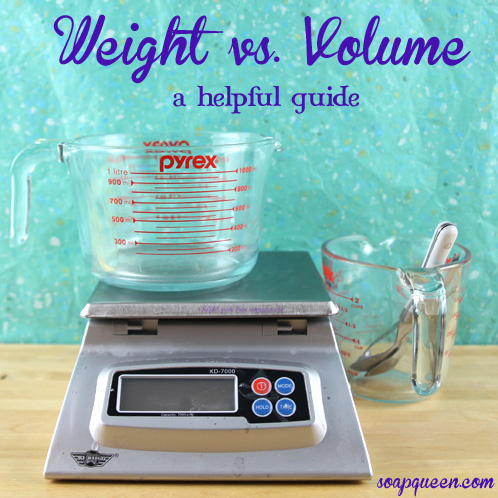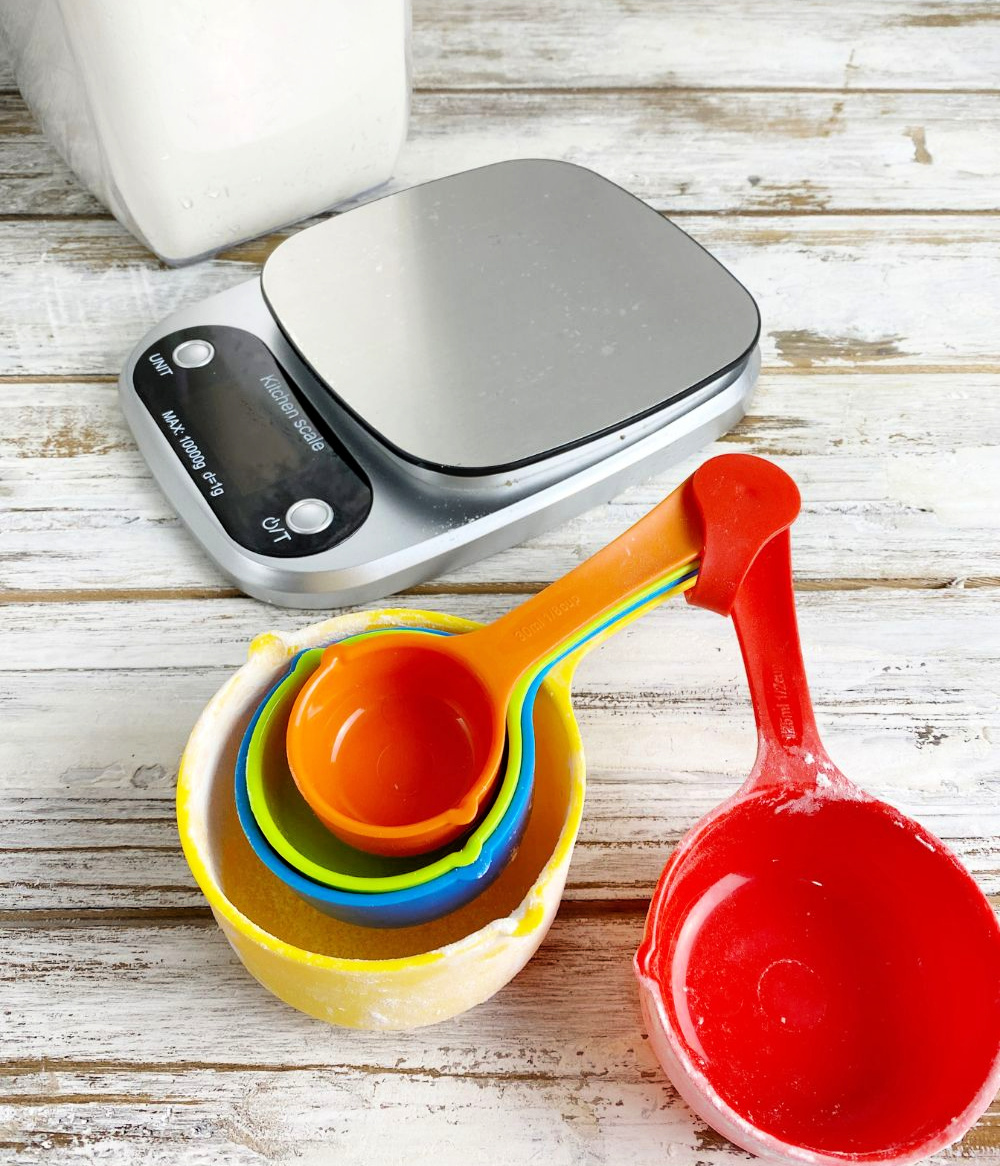Cooking and baking are not just about combining ingredients; precision is key to achieving the perfect dish. Two commonly used methods for measuring ingredients in the kitchen are weight and volume. Understanding the distinction between these two types of measurements is crucial for both amateur and professional chefs.
Weight Measurements:
Weight refers to the heaviness or mass of a particular ingredient and is primarily measured using a scale such as a spring balance or a beam balance. When it comes to cooking, weight measurements provide accurate and consistent results, making them ideal for recipes that require precise ratios of ingredients.
| Pros | Cons |
|---|---|
| Offers precise and consistent measurements | Requires a scale for accurate readings |
| Well-suited for professional kitchens | May create additional dishes for cleaning |

Credit: www.soapqueen.com
Volume Measurements:
Volume, on the other hand, refers to the amount of space occupied by an ingredient. This method is commonly used when following recipes where ratios are more important than exact precision. Volume measurements are typically used for liquids and items such as fruits, vegetables, and grains.
| Pros | Cons |
|---|---|
| Convenient for quick and easy measurements | May be less precise than weight measurements |
| Well-suited for home cooking and casual baking | Can lead to variation in recipe outcomes |

Credit: www.bostongirlbakes.com
When to Use Each Method:
While weight measurements are often preferred for accuracy, there are instances where volume measurements may be more suitable. For example, when serving a whole “unit” as a portion, such as a baked apple, counting the number of apples may be more practical initially, and then weighing them afterward to determine the required ingredient amounts. Similarly, measurements for garnishes and greasing pans are often better suited for volume measurements due to their practicality and the fact that precise weight measurements are not crucial in these cases.
Accuracy and Precision:
In most cases, especially when precision is essential, weight measurements are the preferred choice as they offer reproducible and consistent results. Certain dry ingredients such as flour, sugar, and salt are best measured by weight to ensure the perfect texture and flavor in the final dish. On the other hand, when it comes to liquids like water, volume measurements are often deemed equally accurate due to their consistent density.
Conclusion:
Understanding the difference between weight and volume measurements is crucial for achieving culinary success. While weight measurements offer accuracy and precision, volume measurements are more convenient for casual cooking and when exact ratios are not as critical. By knowing when to use each method appropriately, chefs can navigate their way through recipes with confidence and produce delightful dishes each and every time.
Frequently Asked Questions
What Is The Difference Between Measurement By Weight And Volume?
Measurement by weight refers to the mass of a substance, typically measured with a scale. Volume measures the space that a substance occupies, often used in recipes. Weight is more precise for accuracy, while volume is common in recipes where ratios matter.
Both are important in cooking for different purposes.
Should I Measure Food By Volume Or Weight?
When it comes to measuring food, it is generally more accurate to measure by weight rather than volume. Weight is determined by the mass of the item and is measured using a scale. Volume, on the other hand, refers to the amount of space the item occupies.
While volume measurements are common in recipes, weight measurements provide more precise results, especially when it comes to ratios. Therefore, using weight measurements is recommended for better accuracy in cooking.
What Are The Volume Measures In Cooking?
Volume measures in cooking refer to the amount of space an ingredient occupies, like cups or tablespoons.
Why Should You Measure Ingredients By Weight Instead Of Measuring By Volume?
Measure ingredients by weight for accuracy & consistency in recipes, as weight is more precise than volume.
